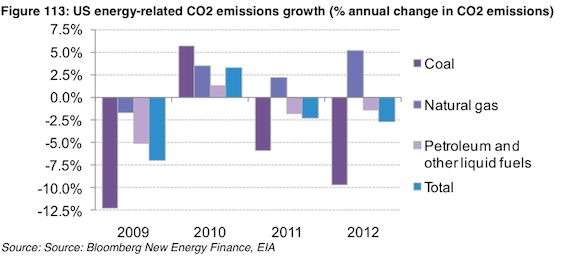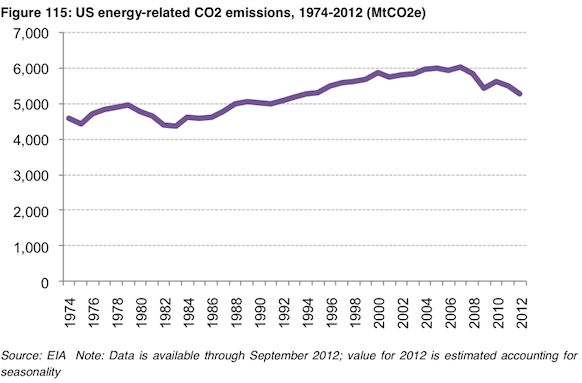The ongoing shift from coal to natural gas has many benefits, from integrating renewables to better air quality. When it comes to carbon emissions, it’s also a rosy picture.
A recent study from Bloomberg New Energy Finance and the Business Council for Sustainable Energy found that the transition from a coal-heavy fleet to natural gas, along with advanced transportation technologies, has brought down energy-related CO2 emissions to the lowest they have been since 1994.

Certainly the recession added to the drop in emissions, but the levels have dropped even further as the economy creaks forward towards recovery, according to the study. “Emissions-related benefits are a common thread running across all of the 'sustainable energy' technologies,” the study authors wrote. “Together, the profound changes wrought by these technologies have resulted in an about-face for the country's emissions trajectory.”

The high praise of the study could be a little premature. As noted, it is the shift to natural gas, rather than the increase of renewables, that could be driving down CO2 emissions in this sector. Many states have renewable portfolio standards, however, and renewables will continue to increase.
Renewables such as wind and solar have the lightest carbon footprints, but the falling CO2 emission levels for the U.S. don’t paint the entire picture. The U.S. is still a coal country, but instead of being consumed domestically, it is just being sent overseas.



